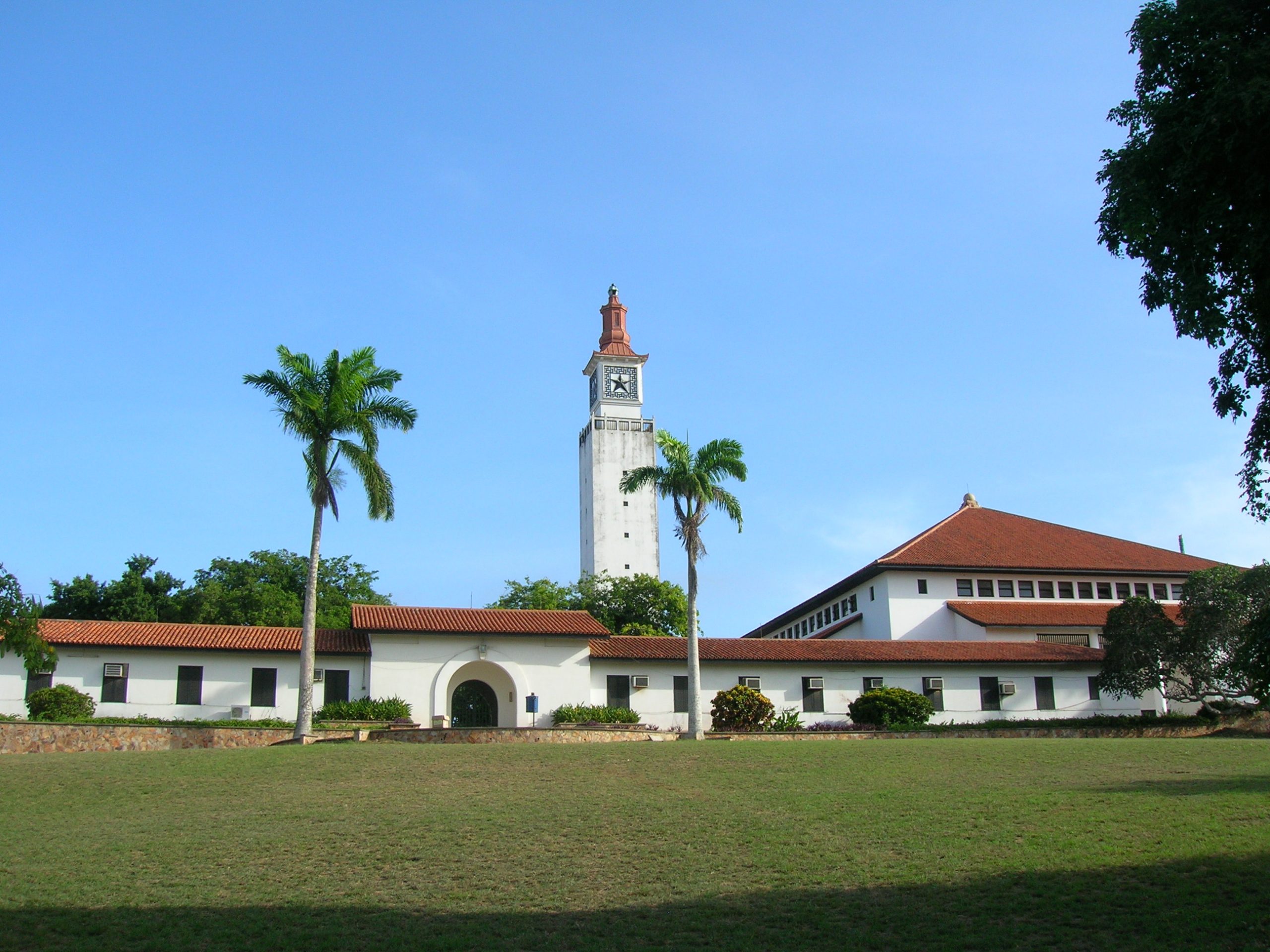
Dr Kofi Boakye coordinates session on Cambridge scholarships in Ghana.
Volunteering as a Gates Ambassador is a natural extension of my passion to see young talent in Africa compete for opportunities at Cambridge and other world-class universities regardless of their location and background.
Dr Kofi Boakye
A Gates Cambridge Scholar coordinated a scholarship information session in Ghana last month for postgraduate students interested in applying to the University of Cambridge.
Dr Kofi Boakye [2006], who did a PhD in Criminology with the support of a Gates Cambridge Scholarship, is director of the Oxbridge Africa Mentorship Programme which held the event at the University of Ghana-Legon on 5th April.
The session included presentations on the Gates Cambridge Scholarship, the Cambridge Commonwealth Scholarship and the newly established Cambridge-Africa Scholarship for MPhil/PhD Programmes at Cambridge. Other speakers were Dr Augustine Ocloo, Executive Director of the Centre for Plant Medicine Research at Mampong-Akuapem and a Fellow of Cambridge Commonwealth Society, and Celeste E. Macauley, Project Coordinator of the Oxbridge Africa Mentorship Programme and a Cambridge Commonwealth Scholar.
Kofi, who is currently a postdoctoral fellow at the Institute of Criminology at the University of Cambridge and also lectures on the Criminology programme at Anglia Ruskin University, spoke about the Gates Cambridge Scholarship. He focused on the application process and the importance of the personal reference and interview. Questions included whether there was any support for those intending to submit an application and how many Ghanaians have been successful in applying for the scholarship.
Kofi says: "It was clear that students would like to see this information session made a regular event as they found it inspiring that ‘some of their own’ have made it onto the scholarship and seeing me standing before them giving them insight into the scholarship and ways they can become more competitive seem more inspiring to them."
The Oxbridge Africa mentorship programme focuses primarily on identifying young talent in Africa and assigning them volunteer mentors from the programme's database, which includes students from several Africa countries including Ghana, Nigeria, Gambia and Botswana. The programme collaborates closely with the Cambridge-Africa Programme to recruit mentors as well as spread the word about scholarship opportunities at Cambridge and Oxford for African students.
Kofi says: "There is a serious lack of awareness about funding opportunities in Cambridge and Oxford for young Africa talents and importantly a lack of appropriate mentoring that would prepare and support this young talent to compete for the available opportunities, including how to prepare for an interview given the critical role cultural differences in behaviour and expectations can have. Volunteering as a Gates Ambassador is a natural extension of my passion to see young talent in Africa compete for opportunities at Cambridge and other world-class universities regardless of their location and background.
"I benefitted immensely from mentoring and I am convinced that the underrepresentation of Africa students in Cambridge and on the Gates Scholarship in particular can partly be traced to the lack of information and mentoring for prospective applicants from Africa. The Cambridge scholarship information session was therefore one of many efforts to try and address some of the peculiar challenges confronting prospective applicants and young talent in Africa."
Picture credit: University of Ghana-Legon.
Kofi Boakye
- Alumni
- Ghana
- 2006 PhD Criminology
- St Edmund's College
Kofi is an academic, a social entrepreneur and a mentor who is passionate about the development of young people and Africa. He moved to Clare Hall as a Junior Research Fellow after completing his MPhil and PhD at St Edmund’s College. His research takes an interdisciplinary approach to issues of crime and development with particular interest in youth and gender-based violence. Kofi has published widely in high-impact journals in the fields of psychology, law and criminology. He serves on several journal editorial boards. He has been a visiting fellow to universities in the US and Africa, including Cornell University School of Law, State University of New York and University of Ghana. Kofi is the founder of the Oxbridge African Mentorship Programme, a charity that provides mentoring for young talents in Africa. He is also co-founder of the African Institute for Crime, Policy and Governance Research, a think tank based in Ghana that promotes high quality research on crime, justice and governance issues to inform policy in Africa.












